The Graduates
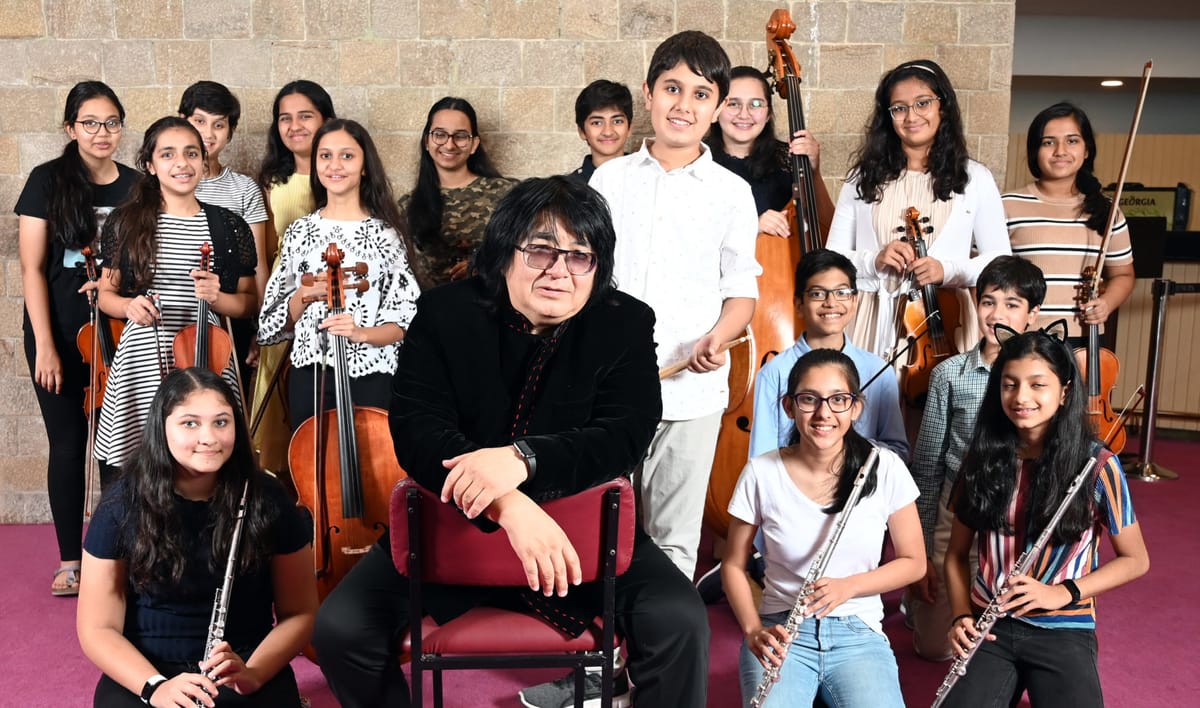
Seven graduating students of the SOI Music Academy look back on their journey and how it has shaped them, inside the classroom, on the stage and out in the world.
While talking about this year’s batch of graduating students of the SOI Music Academy, there is a hint of nostalgia in Marat Bisengaliev’s voice. The SOI Music Director, who also oversees the academy, says he still remembers the students as young kids. They were only seven or eight when they first started studying at the NCPA. “I just can’t tell you how quickly the time has gone by. Our graduates are all teenagers now,” he says.
The past year has been difficult but the work of the academy, though having moved online, has continued. “I’m grateful to our teachers who actually increased their hours to compensate for the lack of in-person sessions during the pandemic,” says Bisengaliev. However, everyone, including the students, is eager to return to the classroom. Bisengaliev too is firm in his belief that no amount of online teaching can replace the effectiveness of in-person lessons. “Online lessons are okay for theory, but ideally, they should only exist as a supplement, as a tool to check on the student. We should have in-person lessons at least two to three times a week.”
As for celebrating the completion of seven years of study at the academy, Bisengaliev is clear that he wants to do something to commemorate the graduates and their many achievements. “We are determined to have some kind of ceremony for the two batches of graduates—last year’s and this year’s. We are also trying to make the annual concert happen, and if it is not possible with a live audience, then we are going to try our best to record and stream it. We are doing everything to make this special for our students, who are really talented,” he says. Bisengaliev is also keen to start training the SOI Academy Orchestra, comprising students of the academy.
“This orchestra holds a very special place for us. It is something that sets this academy apart from others. We put quite a huge emphasis on orchestra culture because I believe that the majority of musicians go on to work in orchestras. Unlike American or Russian schools and academies, we don’t only train soloists but have many lessons on the workings of an orchestra. The SOI Academy Orchestra is something we should be proud of and I would like to start working with it as soon as possible.”
As students graduate, Bisengaliev is hoping that they choose music as a career path. “We are not stopping, because this is only the first step. We’ve got another four years of teaching to impart to the graduates. Some of them have decided to continue their education in Europe. All the others, as far as I know, are continuing their education with us, which is a really good sign,” he says.
We spoke to the seven graduates and asked them about their time as students at the SOI Music Academy. Here is what they had to say:
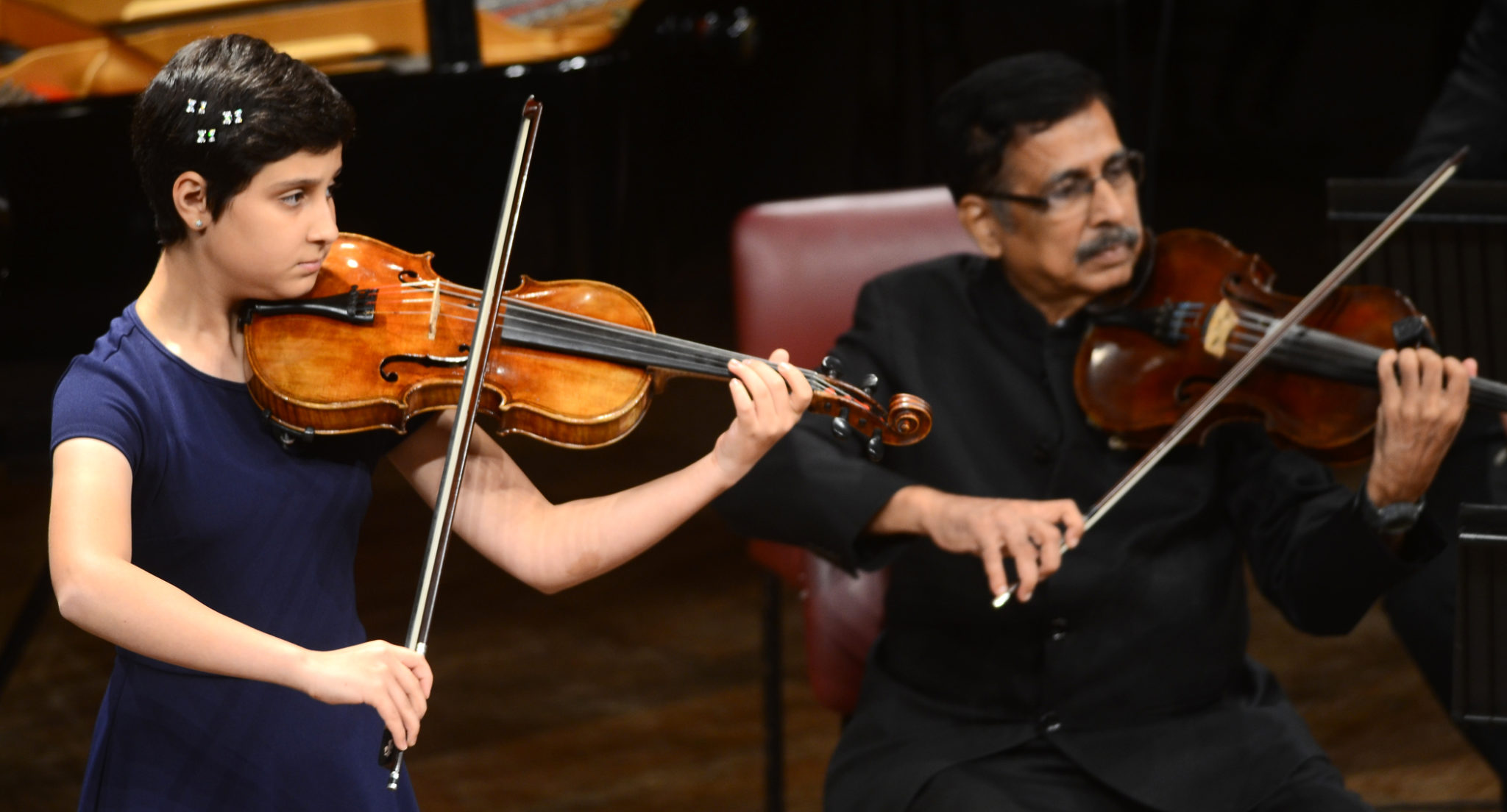
ALIZA JETHA, viola
At six years old, I started taking violin lessons. I played for almost a year before I auditioned for the NCPA music school only to find out that all their violin spots had been filled and their only vacancy was for a viola player. On the premise of being unique, I jumped at the opportunity and have never regretted my decision. Through the years, because of the Russian teaching style, I have been challenged and have grown as a musician. The teachers in the programme are all wonderful and played a huge part in my journey with the viola, especially my current viola teacher, Osman Yarullin. Until about two years ago, it would take some effort on my part to practise, however, I now find myself spontaneously taking out my viola and playing the odd pop song outside of my designated practice time and that, to me, signifies growth not just in terms of playing but also loving and appreciating the instrument. My love for the viola and Western classical music has been nurtured by the many opportunities provided by the SOI Music Academy. I am extremely grateful to have experienced playing on stage in our annual April concert. I find that nothing else I do comes close to the feeling of satisfaction and pure elation I feel after playing in front of an audience.
During the pandemic, I entered my first competition. It was nice that it was online because I could record the pieces multiple times until I was satisfied with my recording. I placed first in my age category and I have to give thanks to Marat Bisengaliev for the use of his viola. Playing an instrument that has a rich sound motivates me to work hard and attempt to utilise the instrument to its full potential.
Balancing academics and music has never posed a challenge to me. When I was younger, my mother ensured I took my instrument out for a few minutes every day. As I got older, I started making time in my schedule to play every day. Playing the viola has given me a focal point that I am passionate about. Studying at the SOI Music Academy has been a productive investment of my time. I had to commit to this programme and therefore had the opportunity to understand that eventually hard work does pay off. I plan to continue my training in music for the next few years at the academy. I feel I am too young to commit to having a career in music, however, it is definitely something I would consider. The one certainty I have is that the viola will always be a part of my life.
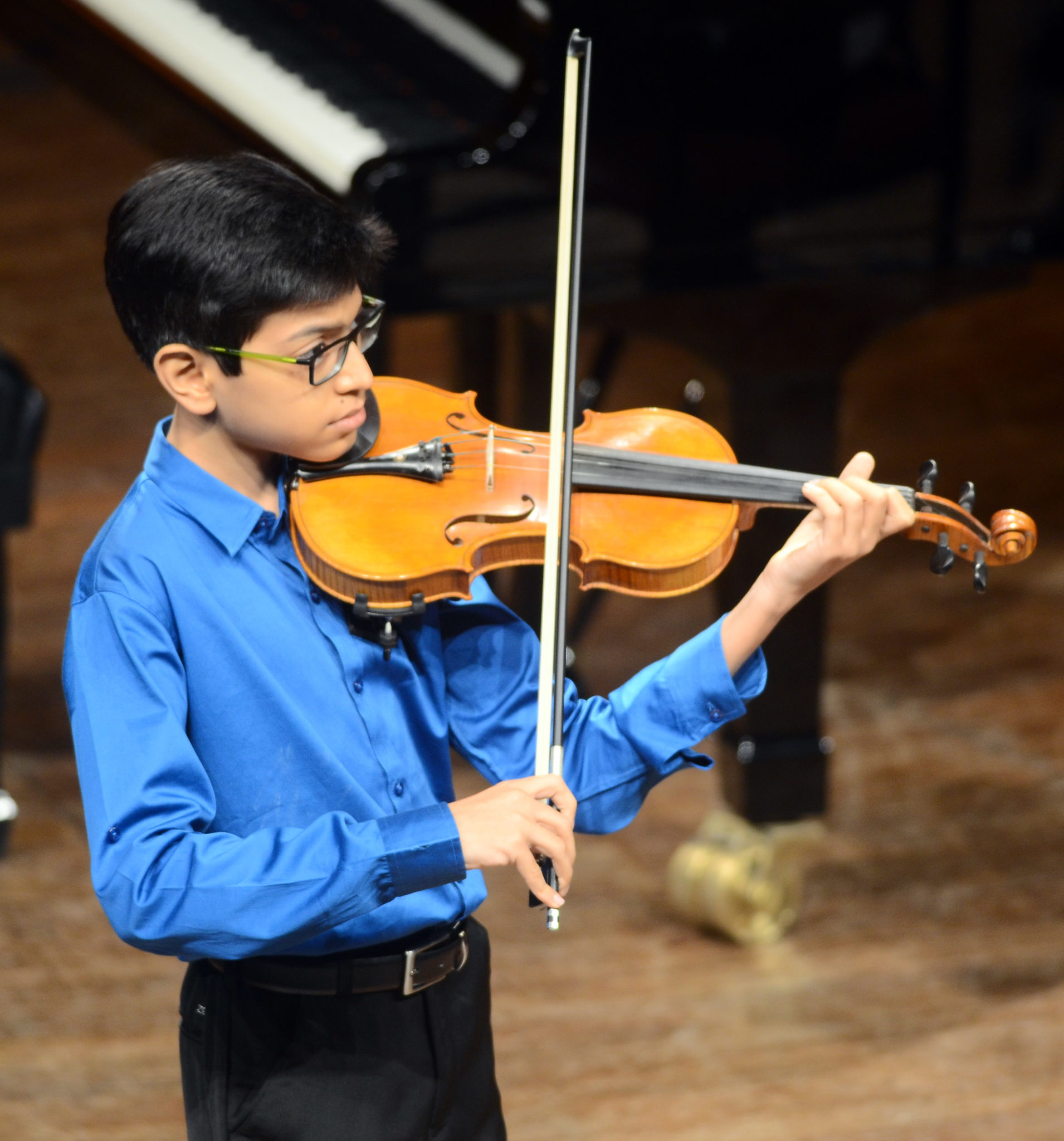
AKSHAY VORA, Violin
My memory takes me back to when I was just two or three years old, and first started listening to classical music whenever we went for a drive. A very fond memory which still has me in possession of the disc that I listened to then. I started playing the violin at the SOI Music Academy at the age of seven. I even played in my first concert—a small drum for one piece—within months of joining the academy. Since then, my appreciation for Western classical music has grown considerably. Over time, I have sharpened my skills as a musician and a large part of this growth can be attributed to the dedicated team of teachers at the academy. I have the highest sense of gratitude for my incredible teacher, Olga Lyapina, under whose tutelage I have learnt that practice is what’s most important to excel in any field. I think her being strict at times is what has helped me to understand how much discipline you require to play such a difficult instrument. Her zeal for perfection is what has always pushed me to work harder.
One of the most enjoyable experiences at the academy is the orchestra rehearsal, which has helped me understand the part played by each instrument and how individually written music comes together to create spellbinding music—something that has always intrigued me. Although the practice is long and tough at times, the final performance is always extremely rewarding. I am delighted to say that I have played in a lot of concerts as a part of the orchestra, and even as a soloist. After the first few performances, I realised that it was important not to be as stressed on stage but just enjoy what I was playing, and this has helped me at school as well. Balancing practice and a hectic schedule at school has always been challenging, but I would never say that I regret it.
In my pursuit of life, music shall be and always remain an integral part. It helps me to stay in tune with my life and it has taught me to endure and persevere in the most challenging situations. I would like to wrap up my experience with a special mention for Marat Bisengaliev. Each of us at the academy has been fortunate to have been touched by his genius, mentoring and guidance. I am fortunate to have his presence in my journey of classical music.
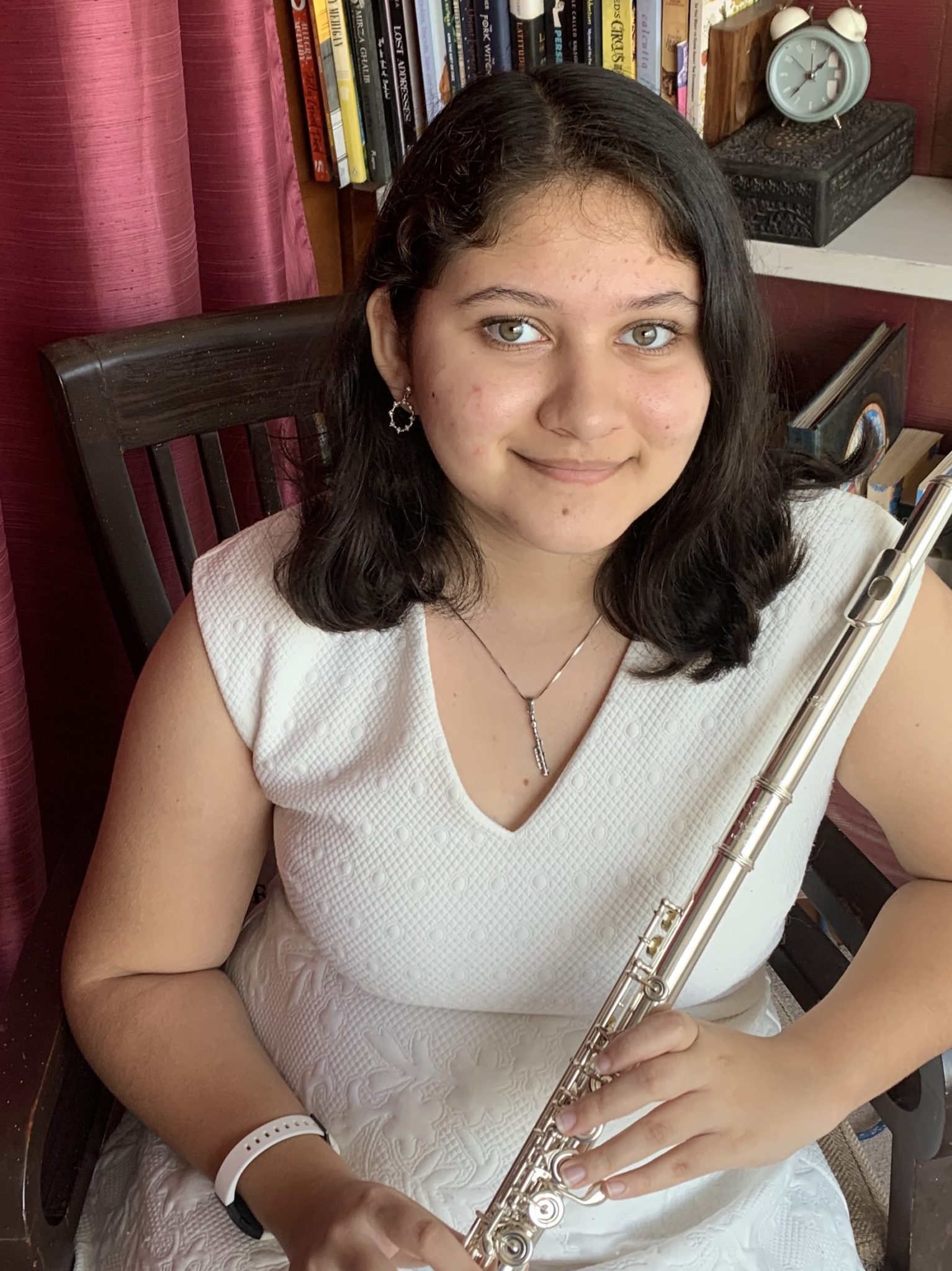
SAMINA BANDUKWALA, flute
Growing up, most parents like to cram their kids’ schedules with all kinds of classes, and piano class was one of them for me. However, I had a cousin who played the flute and I was fascinated by it and wanted to learn to play it. So when my mother heard about the NCPA’s new winds programme, I was eager to join. Since I joined seven years ago, it has been a long road from ‘Twinkle Twinkle Little Star’ to sonatas and concertos, and it has taken a lot of practice to get here. But aside from technical progress, it has been a unique learning experience, the perfect balance between personal and professional.
Firstly, being in this programme has taught me a lot about confidence. When I had just started at the academy, I was seven, and extremely shy and nervous. While performing, my hands would shake and I would fumble at every other note. It took quite some time and endless encouragement from my teachers for me to grow sure of myself. I have now learnt how to deal with nerves and to just keep going, no matter what. I remember this one concert when I was playing solo and I messed up my piece. Regardless, I finished and left the stage smiling, but as soon as I got backstage I was in tears. My teacher Aigerim Beisembekova hugged me and told me it was fine. It was a ripe moment to be scolded, I assumed. Instead, I was comforted.
The manner of teaching and the relationship we have with our teachers is perhaps the most fulfilling part of the academy. It is so personal and caring. All my teachers have been patient through my phases of laziness or distraction, and understanding about schoolwork and exams. At the same time, they have also been very particular about practice and hard work. My teacher once told me that all of her students are like her kids. We have that kind of special bond.
Over the years, I have also learnt that performing can be unpredictable, which is why varied experience in it is especially valuable. The more you perform the more you get used to it and I am grateful for all the different places—all over Mumbai and even Abu Dhabi—I got to perform in through this academy.
Unfortunately, in the past year due to the pandemic, I have only played online concerts. Most online concerts are pre-recorded so there is no rush of adrenaline, no audience watching and none of the fun we usually have backstage. Online classes have not interrupted my learning but it is not the same experience. The only bright side is that I don’t have to spend two hours commuting anymore.
Studying music at the SOI Music Academy is a big commitment and definitely not easy as it requires hours of dedication. However, playing a classical instrument has taught me the importance of discipline and also given me the ability to express myself better. Music is part of who I am. Even though I am in a crucial school year (the tenth grade), with admissions for schools and colleges coming up, I cannot imagine my life without music, whether I pursue a career in it or not.
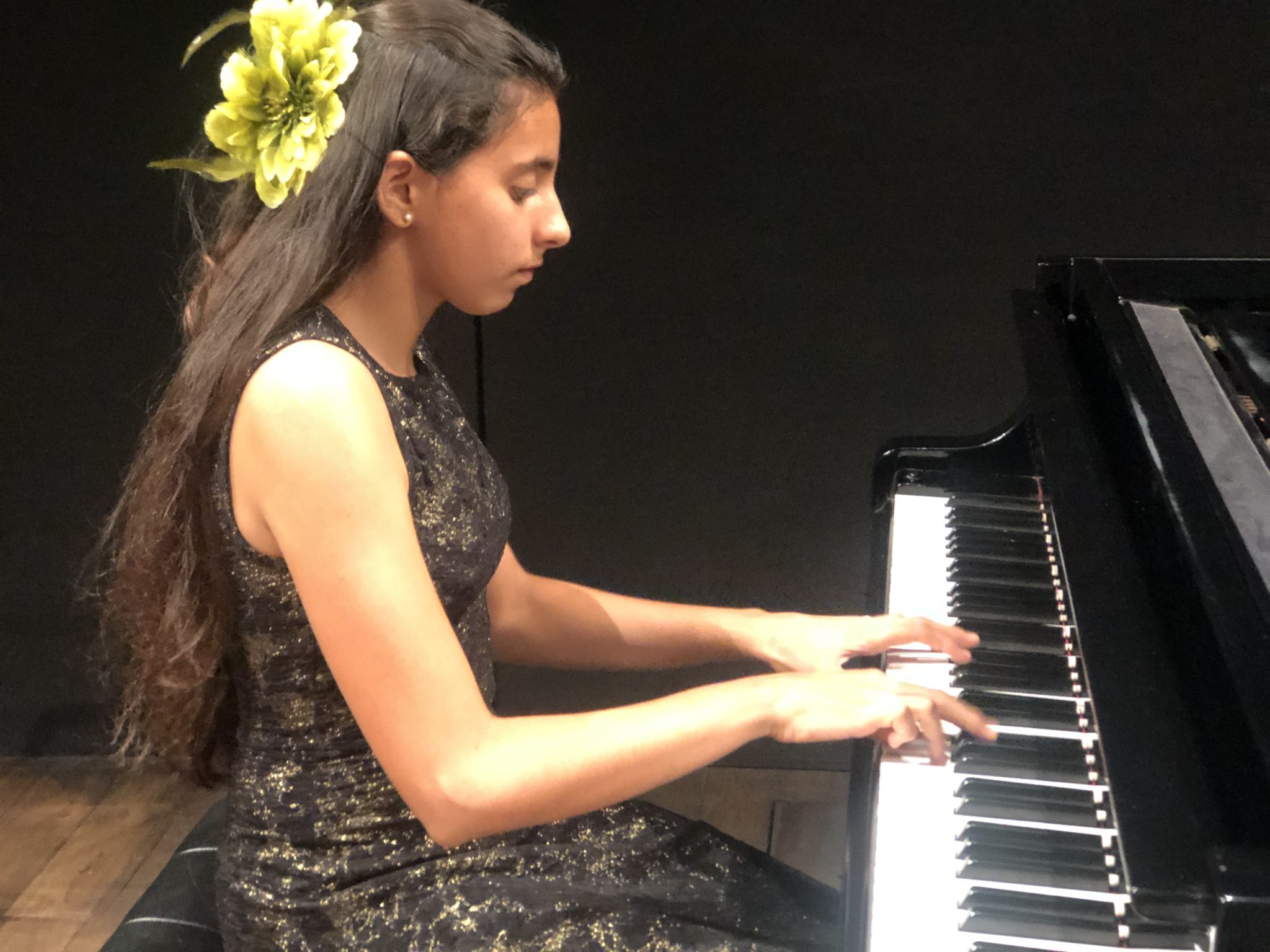
SAHEBA SINGH, piano
I was first introduced to the world of Western classical music as a young girl, when my parents started piano lessons for me. At first, I could not fathom being able to play such a vast instrument, but looking back at it today, I am glad that piano has become such a prominent part of my life.
My sister auditioned for the SOI Music Academy before I did, and after hearing endless stories about it, I knew I had to audition for it. At the academy, I have not only grown as a pianist, but also as a person. It has instilled a plethora of qualities in me that I did not have seven years ago. The numerous concert opportunities that we received over the years have boosted my confidence, helping me conquer my fear some more each time I stepped on stage. The hard work that goes into putting up a good programme taught me resilience, because that makes the end result so much sweeter. But most importantly, the NCPA instilled in me a love and passion for playing the piano, making it one of my favourite ways to unwind.
Through this seven-year rollercoaster ride, my teacher, Aida Bisengalieva, has been a constant support system, and I would not be where I am today without her. I distinctly remember one concert where I had lost my music right before my part to go on stage. Naturally, I was in tears and overcome by anxiety. However, I remember every single teacher backstage reminding me of my capabilities, and making me feel loved. This unity and togetherness is one of the best things about being part of this community, and I am grateful to have been here for so long.
The last year has been nothing short of tumultuous, as our lives were transformed into tiny laptop screens, our musical training included. However, I was amazed at my teacher’s determination to continue during this difficult phase, and that motivated me throughout the year. There were times when I would be dispirited, or academic pressure would take up my time. But Miss Aida’s help in time delegation, and her support in all aspects of my life, definitely made this year a lot easier for me, and I cannot be more grateful.
Today, the piano plays a massive role in my life, whether I am humming the tune of a Beethoven sonata, a piece of pop music, composing something or even experimenting with different styles. I hope to continue playing in the future, possibly in a band, so that I can share my love and passion for music with others.
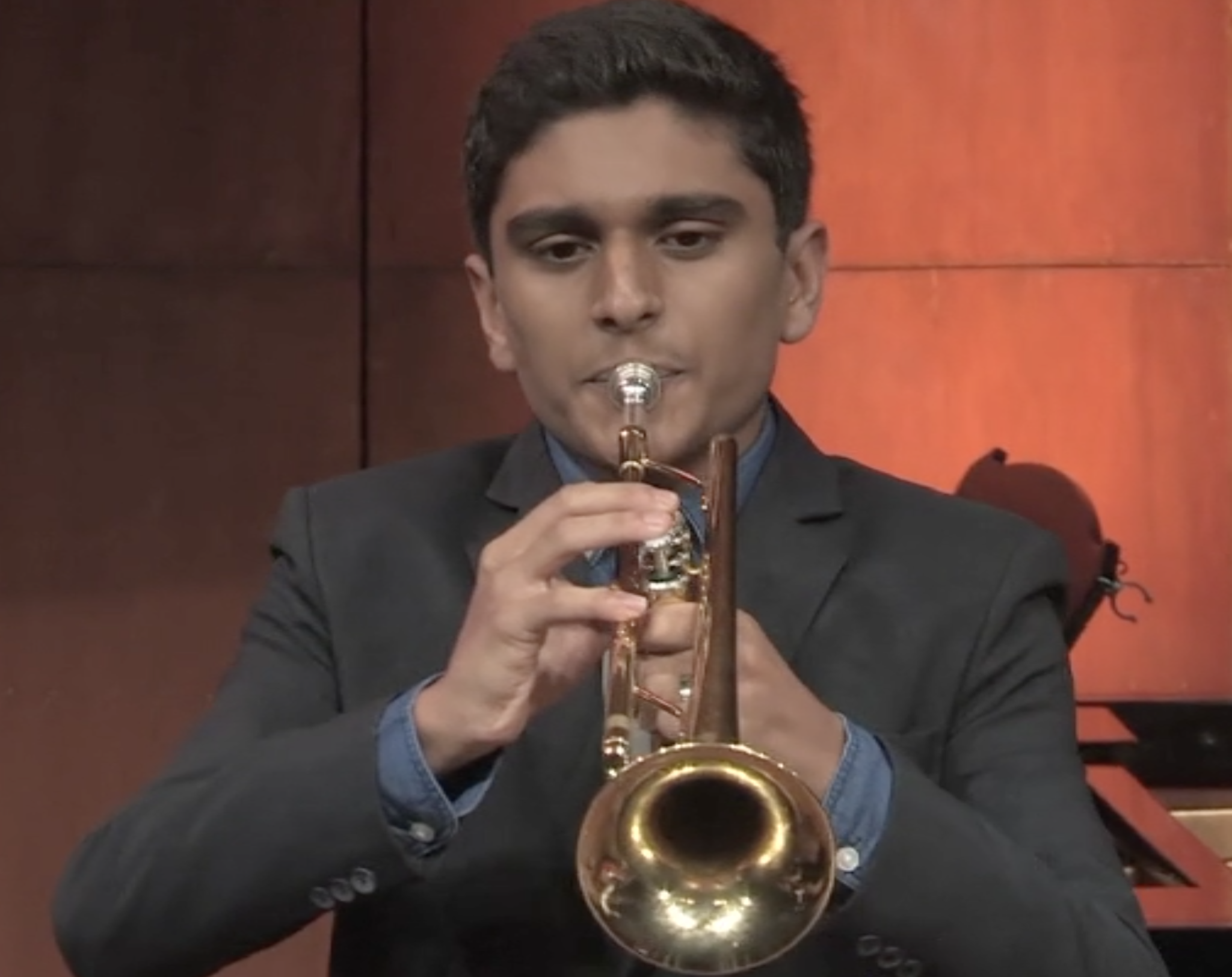
YOHAN PASTALA-GUPTE, trumpet
I wanted to play the trumpet since I was five, when I first heard it played live at a service in my church. As I was too young for the trumpet then, I started an early music education class until there was an audition for wind instruments at the NCPA. I was ten when I started learning the trumpet at the SOI Music Academy.
During the first few months of class, I could barely hold the trumpet for an extended period. Now I am able to practise for hours together. Speaking of practice, my first teacher, Stuart Potter, taught me some important lessons in it. During our time together, he would always ask me, “What is the most important note?” And the correct answer was always, “The next note.” He used an interesting technique to help me focus—Stuart would use a bunch of coins and make me practise a section of music over and over until I got it right. For every time I played without mistakes, he would move a coin to the other side until I played it right consecutively for the total number of coins. If at any time during this process, I made a mistake, he would move back all the coins and I would have to start again.
My current teacher, Adil Ukibayev, has introduced me to various pieces that every professional trumpet player should know. He helped me master my technique and precision and pushed me to the level I am at now. I am grateful that a big part of my musical training at the academy has been on stage so we could hone our skills and learn through concert experiences and orchestral practice. My experience of online classes during the pandemic has been very smooth thanks to my teachers and the NCPA administration. While the quality of my lessons in trumpet, piano and solfeggio have not changed, I am eagerly waiting for in-person lessons, especially the orchestra rehearsals and concerts.
Today, I am in the 12th grade and to be able to find a meaningful balance between exams, college applications and practice has been difficult. But I believe I have managed well. I am currently in the process of applying to music academies in Europe and am compiling my audition tapes. The tapes are due soon and I will be recording them in the same church where I first heard the trumpet.
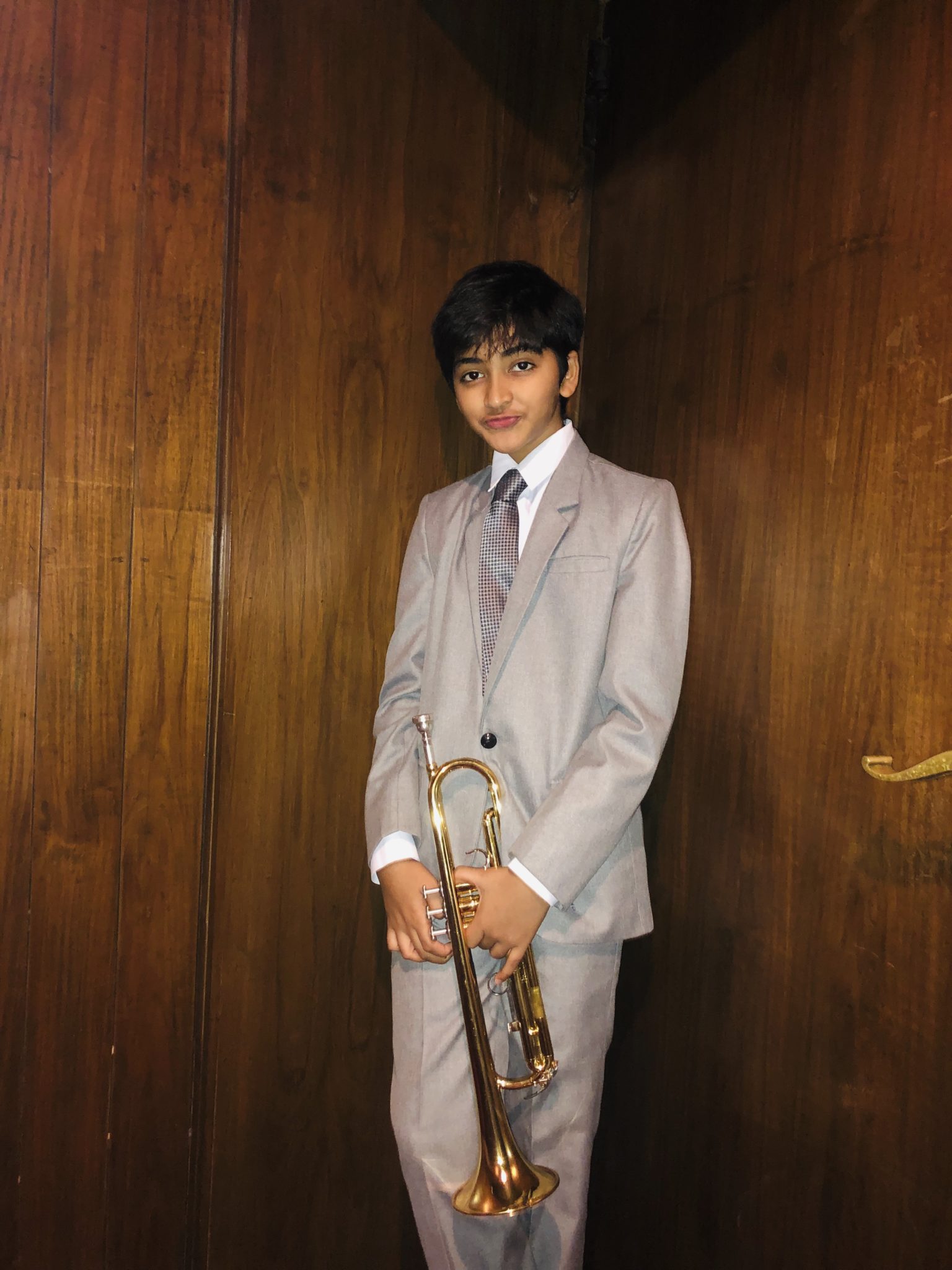
DHRUVA RAGHAVAN, trumpet
I was introduced to Western classical music through watching my sister Shloka play the cello at the SOI Music Academy. Listening to her perform and practise encouraged me to audition for wind instruments when I was seven years old.
While I took to the trumpet like a fish would to water, over the last seven years, the instrument has become an intrinsic part of who I am. I feel inspired to work on more complex pieces and have explored a wide range of music styles that include jazz, retro and contemporary music that lend themselves to the trumpet.
For everything I have learnt, my deepest gratitude is reserved for my teachers, Stuart Potter, Oleksii Shyrokov and Adil Ukibayev. While Stuart encouraged me to develop my love for music and experiment with the trumpet, Adil has honed my skill and brought a deeper sense of rhythm between me and my instrument. Marat Bisengaliev is an inspiration and as someone I look up to, I want him to be proud of me.
The high point of my training has always been the opportunity to perform before an audience. While this was always preceded by intense practice, the joy in seeing my music connect with and move people is what has encouraged and inspired me to keep working harder in helping me bring more music into the world.
The lockdown has been hard because the computer screen can never substitute the happiness that comes from being together with people and playing. I have generally tried to maintain a regular practice schedule for my music alongside my schoolwork and extracurricular sports activities. I realise that as my work load at school increases, this will become more difficult to balance, but for me time spent with the trumpet is both work and relaxation. It helps give me time to myself and my music—which is valuable to me. And we can always make time for the things that bring us happiness.
While I do not know what the future has in store for me, I would like music to always be a part of my life. If it leads me someday to become an artiste playing in an orchestra or at a club, so be it.
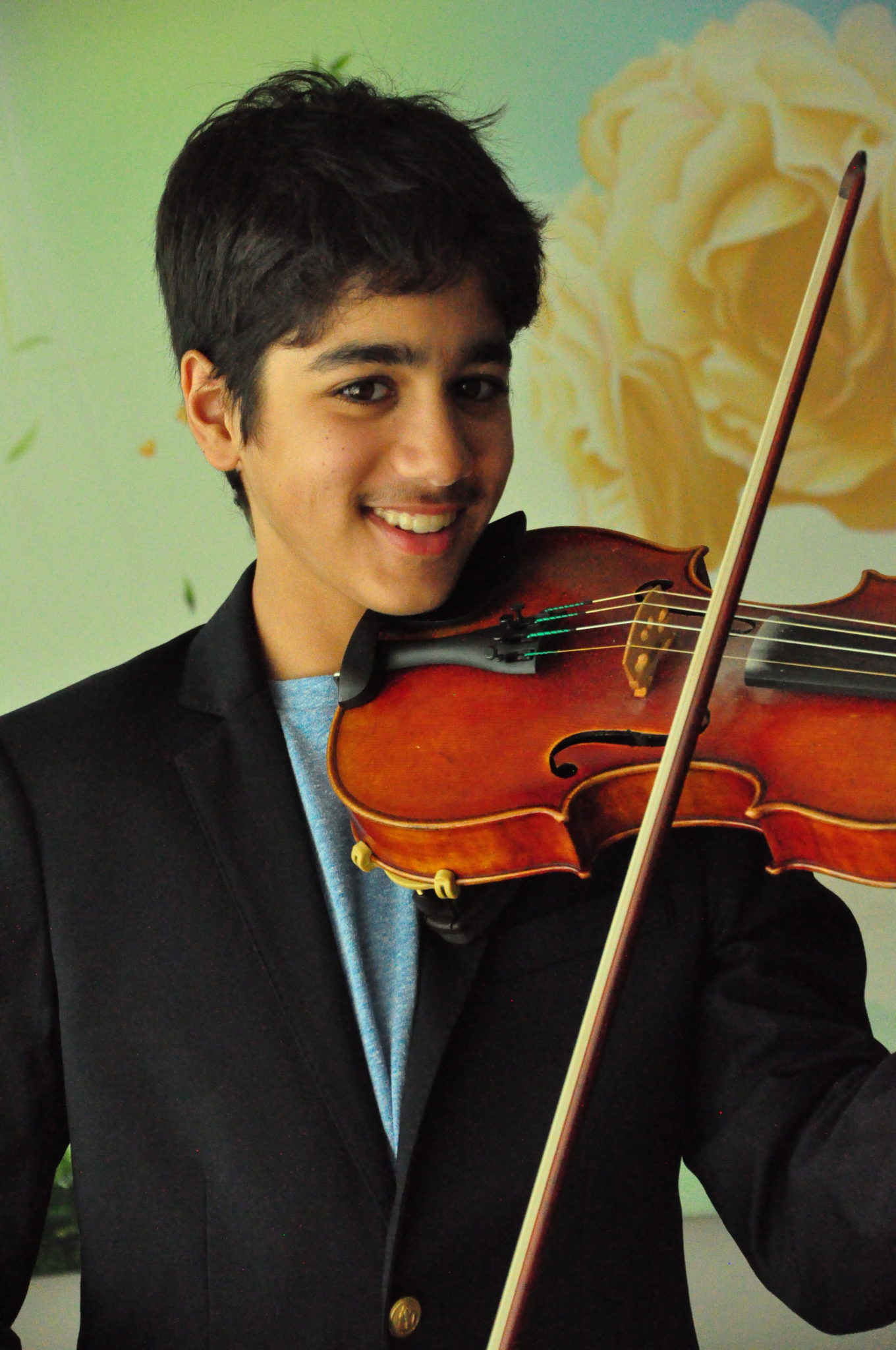
SUMER MURTHY, violin
My mother says that she used to play a lot of classical music for me when I was a baby, as she had heard that this helps in development. However, my earliest memories merge lively classical music with the opening and closing credits of my favourite Tom and Jerry cartoons. Maybe this is why I jumped at the opportunity to try out learning how to play the violin as an after-school activity, first through a programme offered at school, and then at the SOI Music Academy.
Performing on stage through the academy has boosted my confidence and has helped me in speaking in front of large audiences, which is an important life skill. Performing with the orchestra has made me realise the importance of working as a team. It transforms the individuality of playing the violin alone into a fun group activity. My teacher, Gulzara Shakir, makes me practise rigorously, but she also has my best interests at heart, and makes our classes together entertaining and engaging, even when she is teaching me online as she has been for the past year during the Covid-19 crisis. Her dedication to teaching me and her keen attention to detail has greatly improved my technique through the years and without her, I would not have made it this far in the academy. She encouraged me to participate in two international music competitions in the last few years, and these have been golden experiences that have given me a chance to grow as a performer, to see how I compare with musicians from other parts of the world and to get feedback from the distinguished judges. It is because of her rigour and my effort to practise that I was lucky enough to place second in both these competitions, one at the Jumeirah Sounds competition in Dubai, and the second at the Newport Virtuosi International Online Music Competition in the U.S.
Playing the violin makes me feel peaceful and happy. It is sometimes a challenge to balance schoolwork and violin practice, but once I get in the flow, all my stress goes away, and I feel relaxed to play the violin after a long day of school. During the pandemic, it is fun to play the violin when I am bored and have nothing to do. Online lessons are better than nothing, but I prefer in-person classes. Now that Miss Shakir is back in Mumbai, I hope we can meet and resume our classes. I am proud to graduate from the programme and I plan to continue my training in music. A career in music is something that I am very interested in, but it is too early in my life to commit to anything. I would just like to say that music is a huge part of my life and I am eager to continue pursuing it.
This piece was originally published by the National Centre for the Performing Arts, Mumbai, in the April 2021 issue of ON Stage – their monthly arts magazine.





